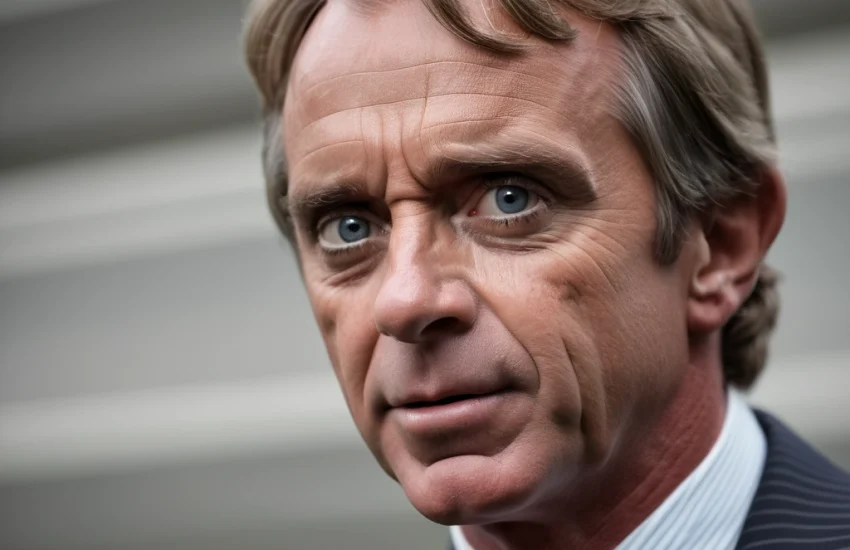Robert F. Kennedy Jr.’s evolution from environmental lawyer to controversial public figure can be traced through increasingly contentious public statements that have shaped both his public image and political discourse. His declarations on various topics have generated significant debate and media attention, particularly regarding public health and governmental authority.
Kennedy’s most widely discussed statements center on vaccination. “They get the shot, that night they have a fever of 103, they go to sleep, and three months later their brain is gone,” he claimed at a 2015 screening of the film Trace Amounts. This statement exemplifies his tendency to make dramatic claims about vaccine safety that conflict with scientific consensus. Medical experts extensively criticized this declaration, noting it misrepresented both the nature of vaccine reactions and their frequency.
His COVID-19 statements proved particularly controversial. “We’re getting rid of paper currency and forcing everyone to use a digital currency that can be turned off and on by the government,” he stated in 2020, connecting pandemic response to broader conspiracy theories about government control. This statement reflected his expanding focus from specific vaccine concerns to wider claims about governmental overreach during public health crises.
Social media platforms became a significant battleground for Kennedy’s statements. Before his accounts faced restrictions, he declared, “The pharmaceutical industry has captured the media narrative through financial influence.” This 2021 statement exemplified his frequent assertions about institutional corruption, though critics noted it avoided addressing the scientific evidence contradicting his positions.
Kennedy’s environmental statements present an interesting contrast to his health-related declarations. “Our environmental laws are a democracy’s answer to the tyranny of the marketplace,” he stated in 2018, displaying the more conventional progressive positioning that characterized his earlier career. This dichotomy between his environmental and health-related rhetoric has puzzled many observers and former allies.
His statements about Anthony Fauci drew particular attention during the pandemic. “Anthony Fauci put us all under house arrest,” he claimed in 2021, attributing broad policy decisions to a single public health official. This statement demonstrated his tendency to personalize institutional actions and frame public health measures as deliberate restrictions of freedom.
During his 2024 presidential campaign, Kennedy’s statements expanded to encompass broader political themes. “The Democratic Party has abandoned its traditional role as the defender of civil rights and civil liberties,” he declared, justifying his independent run. This statement reflected both his break from family political tradition and his evolving political identity.
On economic issues, Kennedy has made statements that cross traditional political lines: “The Federal Reserve serves the banks, not the American people,” he declared in 2023, combining left-wing criticism of financial institutions with right-wing skepticism of central banking. Such statements highlight his unique political positioning, drawing supporters from various ideological backgrounds.
Media criticism features prominently in his rhetoric. “Mainstream media has become a tool of corporate interests,” he stated in 2022, echoing critiques from both left and right while focusing particularly on pharmaceutical industry influence. This position helped him build audiences across traditional political divides.
His statements about historical events have proven particularly controversial. In 2022, he claimed, “The COVID restrictions were worse than what Anne Frank faced,” drawing widespread condemnation for comparing public health measures to the Holocaust. He later apologized, but the statement exemplified his tendency toward inflammatory historical comparisons.
Tech industry criticism emerged as another significant theme: “Social media companies are engaged in censorship on behalf of government agencies,” he declared in 2023, connecting his vaccine skepticism to broader concerns about technology and surveillance. These statements resonated with groups already skeptical of both corporate and government power.
Foreign policy statements revealed similar complexity. “We need to stop endless wars while maintaining strong defense,” he stated during his campaign, attempting to bridge anti-war sentiment with traditional national security concerns. Such statements reflect his effort to craft a unique political identity distinct from both major parties.
Climate change positions showed evolution from his environmental attorney background: “We need climate action that doesn’t destroy the middle class,” he declared in 2023, attempting to balance environmental concerns with economic populism. This demonstrated his effort to maintain environmental credibility while appealing to new constituencies.
Corporate power remains a consistent theme: “Corporations have corrupted our democracy,” he stated in 2024, connecting various concerns about institutional influence. Such statements maintain continuity with his earlier environmental activism while supporting his current positions on health freedom and government power.
Education statements reveal similar complexity: “Schools should teach critical thinking, not compliance,” he declared in 2023, connecting educational policy to broader themes of institutional authority and individual autonomy. This framing attempts to unite various strands of his political philosophy.
His statements about personal freedom increasingly center his message: “Freedom is the core American value we must protect,” he declared during his campaign, attempting to frame various positions within a liberty-focused narrative. This approach helps unify his diverse political positions under a single theme.
Family legacy statements prove particularly notable: “I’m carrying forward the Kennedy tradition of questioning authority,” he claimed in 2024, attempting to reconcile his controversial positions with his family’s political history. Such statements reflect his effort to maintain connection to Kennedy legacy while charting an independent course.
The evolution of Kennedy’s public statements reveals broader changes in American political discourse, particularly regarding institutional authority and public health. His ability to attract supporters from across political spectrum while making highly controversial claims demonstrates changing nature of political communication and trust in traditional institutions.
The impact of his statements extends beyond immediate controversies, influencing public discourse about science, government authority, and corporate power. Whether embraced or criticized, his declarations have significantly shaped debates about public health, institutional trust, and political independence.
His journey from environmental advocate to controversial presidential candidate, traced through public statements, provides insight into contemporary political realignment and the changing nature of public discourse about science, health, and governmental authority.
